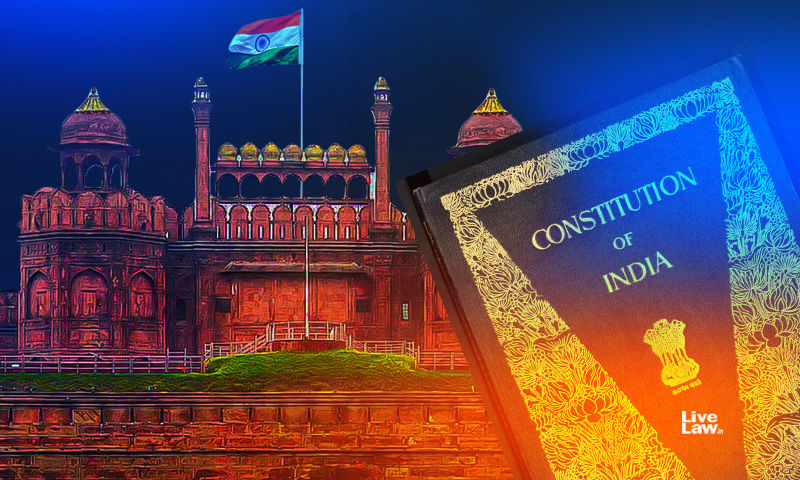A plea has been filed in Supreme Court seeking deletion of ‘Socialist’ and Secular words for India’s Preamble on the pretext that these words, added through the 42nd Amendment Act, were “antithetical to the constitutional tenets as well as the historical and cultural theme of India”.
The move was “per se illegal for violating the concept of freedom of speech and expression enumerated in Article 19(1)(a) of the Constitution and the right to freedom of religion guaranteed under Article 25 of the Constitution,” it said.
Claiming that it is a communist concept that has been applied to India, the petition says ‘India, the oldest civilization of the world, having clear concept of ‘Dharma’ different from the concept of religion,” and that the communist theory of State cannot be applied in Indian context which was not in tune with the religious sentiments and socio- economic conditions of India.
“Issue appropriate direction striking down the words ‘Socialist’ and ‘Secular’ inserted in the Preamble of the Constitution by section 2 (a) of the Forty Second Constitution Amendment Act, 1976,” the petition, filed by advocates Balram Singh and Karunesh Kumar Shukla and an individual Pravesh Kumar, said.
The three petitioners – Balram Singh and Karunesh Kumar Shukla and Social worker – Pravesh Kumar intend to launch their own political party so they have challenged the insertion of these words in Section 29-A (5) of the Representation of People Act, 1951, by an amendment in 1989, seeking a clear direction from the Union of India to declare that the concept of ‘socialism’ and ‘secularism’ referred to the nature of the republic and was limited to the working of the sovereign function of the State and same is not applicable to the citizens, the political parties and the social organisations.
There have been attempts to insert these words but all the attempts were dismissed. The plea mentioned three such instances when there were attempts to include these words earlier but all were dismissed and argues that the original Constitution makers deliberately chose to keep these concepts out of the Preamble.
On November 15, 1948, Professor KT Shah had proposed adding the words “Secular, Federal and Socialist Nation”, but the Constituent Assembly (CA) had rejected it after a lengthy discussion.
Again, on November 25, 1948, a second amendment was introduced and discussed on incorporating the word ‘secular’ in the draft Constitution. That, too, was rejected.
On December 3 that same year, a third attempt was made to include ‘secular’ in the Article 18 of the Constitution, which was also dismissed by the CA.
“In view of the fact that states have power to indulge in religious matters, though in limited sense, and can give grant to religious minorities, the state as a political entity cannot be a secular republic in strict sense,” the petition stated.
We shall wait and watch what could be outcome of such petitions.
Earlier in June, a PIL was filed by an individual named Namah seeking to change the name of the country from ‘India’ to “Bharat”. In this plea, petitioner – Namah – sought enforcement of the fundamental rights under Article 21 of the Constitution which entitles every citizen equal right to call his or her own country as ‘Bharat’.
However, Chief Justice of India SA Bobde refused to entertain the plea and told the petitioner that “Bharat” was already included as a name for the country under the Constitution of India, clarifying that the Supreme Court “could not do” what the petitioner was asking for.





